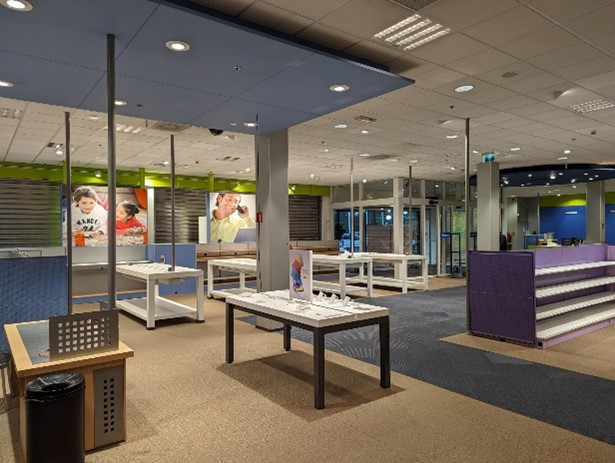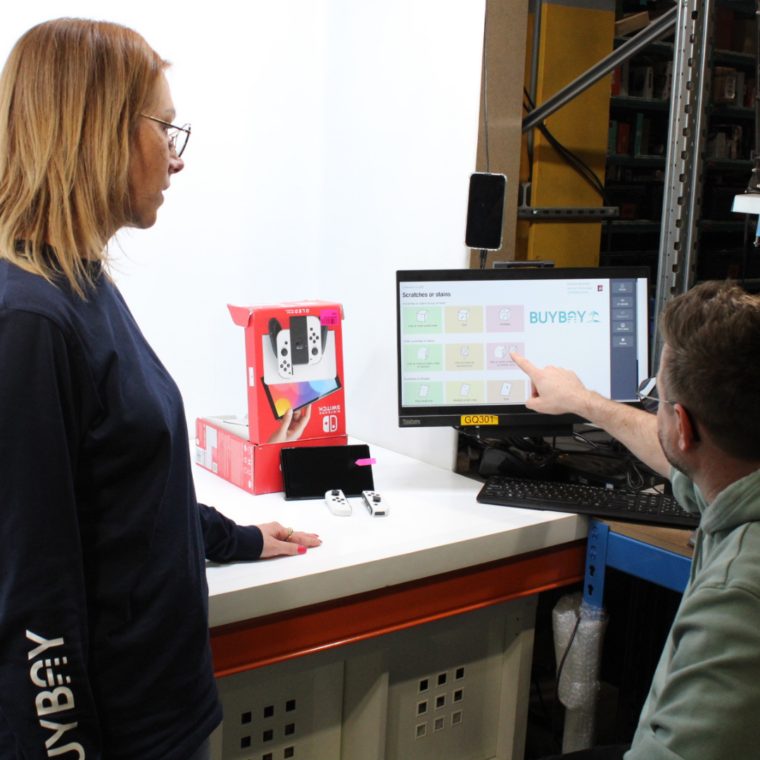
Can intelligent returns management help?
Black Friday and Cyber Week mark the start of the peak season for online retail. After the declining figures in e-commerce, this is actually a ray of hope. However, experts and studies see several problem areas for the 2022 holiday season – first and foremost, consumers’ shrinking purchasing power and delivery difficulties. In recent studies, consumers therefore mention price, but also quality, as the most important decision-making criteria when choosing Christmas gifts. The aspect of sustainability has moved up to third place among the selection criteria. Having the current situation in mind, not only we saw how intelligent returns management and the re-commerce of returned goods can help to meet the challenges and satisfy the demands of shoppers, but also our partners.
Quality-conscious bargain hunters discover re-commerce
Recent studies confirm that the majority of shoppers will be significantly more mindful of their money when it comes to Christmas gifts in 2022. The reasons for this are the rising cost of living, inflation, and economic uncertainties. For example, 67 percent of the survey’s participants plan to cut back on their Christmas gifts this year. Only 26 percent of shoppers plan to spend between 101 and 300 euros – last year it was still 40 percent. Closely after the price, the quality of the products is the next most important criterion in the purchase decision. 42 percent of consumers also want to buy gifts earlier than in previous years and actively look for bargains.
Within the 2022 Christmas shopping season, the trend towards re-commerce could therefore gain even more momentum. It offers consumers an attractive and also more cost-effective alternative to brand-new goods. Often, returned products are only offered at reduced prices due to damaged packaging or minor defects. Regarding costs, many buyers will therefore gladly accept a scratch on the back of a high-quality coffee machine in order to save part of the purchase price instead of buying a cheaper, lower-quality model.
Availability of goods for Christmas
Getting the eagerly awaited game console or the desired bicycle under the Christmas tree in time could be problematic this year. Surveys show that 95.5 percent of bicycle retailers are still left with empty stocks. The consumer electronics (95.7 percent), household appliances (95.5 percent), and toys (73.5 percent) merchandise segments are also affected by this dilemma. The justified fear of long delivery times and a price increase due to inflation are therefore the main reasons for consumers to look out for offers when buying gifts extra early this year.
With the help of intelligent returns management, the problem of delivery bottlenecks can at least be somewhat alleviated. As soon as returns arrive, intelligent software and semi-automated processes are used to evaluate them and prepare them for resale. Instead of blocking warehouses and losing value, they are returned to the consumer cycle as quickly as possible. This not only improves retailers’ profits but also the availability of goods for buyers.
Sustainability among the top 3 criteria for purchasing decisions
According to recent research, the issue of sustainability – after price and quality – has moved up to third place among the most important selection criteria. Another study shows: 88 percent of consumers expect brands and retailers to clearly state their values – especially in the fields of environment and sustainability. Thus, 83 percent of consumers are particularly on the lookout for sustainable brands and products this year.
Online retail has been widely criticized in terms of sustainability, for example in the handling of returns and their destruction. Offering returns as well as B-goods not only offer an attractive alternative for price-conscious shoppers. It is also a good option for consumers who are concerned about the sustainable use of resources. In another study, seven out of ten respondents said they had tried or would like to try buying used, repaired, or refurbished products. Especially among Generation Z and Millennials, the interest in actively supporting the “circular economy” is even greater. By dealing with returns in a sustainable way, companies can show their customers who want to actively contribute to a greener future that they are making targeted investments here.
In summary, optimizing returns management, handling goods responsibly, and investing in re-commerce offer a solution approach to challenges such as lack of purchasing power, delivery difficulties, and the desire for sustainability that retailers face this holiday season. And that ultimately not only helps the sellers but also pleases the gift givers and gift recipients.


